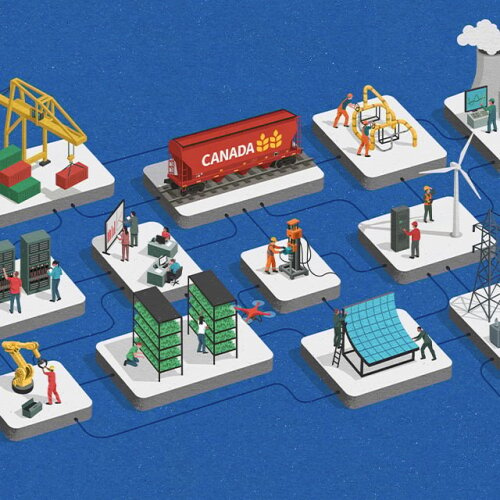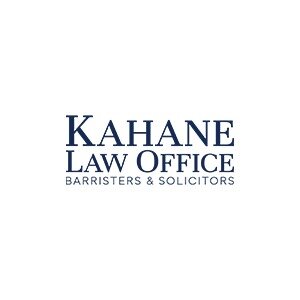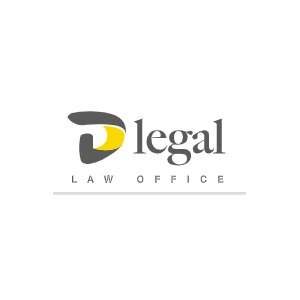Best Oil, Gas & Energy Lawyers in Calgary
Share your needs with us, get contacted by law firms.
Free. Takes 2 min.
List of the best lawyers in Calgary, Canada
About Oil, Gas & Energy Law in Calgary, Canada
Oil, Gas & Energy play a significant role in Calgary, Canada's economy and are governed by specific laws and regulations. This field of law deals with various legal aspects such as exploration, production, transportation, and distribution of oil, gas, and other forms of energy. Understanding the intricacies of this area can be complex, so seeking legal advice is crucial to navigate through the legal complexities.
Why You May Need a Lawyer
There are several situations where consulting a lawyer specializing in Oil, Gas & Energy law in Calgary can be highly beneficial:
- Contract Review: When entering into agreements related to oil, gas, or energy, having a lawyer review the contract ensures that your interests are protected, and all legal requirements are met.
- Dispute Resolution: In case of conflicts or disputes arising from oil, gas, or energy-related matters, a lawyer can provide guidance and represent your interests to resolve the issue effectively.
- Permitting and Regulatory Compliance: Obtaining necessary permits, licenses, and complying with regulatory requirements can be complex. A lawyer with expertise in this area can ensure compliance with relevant regulations.
- Environmental Impact: Energy-related activities often have environmental implications. A lawyer can advise you on environmental compliance and represent your interests in related legal matters.
- Taxation and Royalties: Oil, gas, and energy activities involve complex taxation and royalty structures. Seeking legal advice can help ensure proper tax planning and appropriate calculation of royalties.
Local Laws Overview
Calgary, Canada has specific local laws and regulations that are crucial to understand in the oil, gas, and energy industry. Key aspects include:
- Regulatory Bodies: The Alberta Energy Regulator (AER) governs energy resource development, monitoring, and compliance.
- Environmental Laws: The Environmental Protection and Enhancement Act (EPEA) and the Water Act set guidelines and standards to ensure environmental protection during energy-related activities.
- Land Rights: Understanding land rights, leases, and easements is important for energy companies engaging in exploration, extraction, or transportation activities.
- Indigenous Consultation: Oil, gas, and energy projects must adhere to consultation requirements with Indigenous communities as per Canadian law.
- Permitting and Licensing: Specific permits and licenses are required for various energy-related activities, and compliance with the regulatory approval processes is essential.
Frequently Asked Questions
Q: What are the major energy resources extracted in Calgary?
A: Calgary primarily focuses on extracting oil, natural gas, and bitumen from the surrounding regions. It is also involved in renewable energy sources like wind and solar.
Q: How can I ensure my energy-related contracts are legally sound?
A: Hiring a lawyer specializing in oil, gas, and energy law can help you review and negotiate contracts, ensuring they are legally sound, protect your interests, and comply with relevant regulations.
Q: What are the environmental regulations for energy-related activities in Calgary?
A: Energy-related activities in Calgary must adhere to environmental regulations outlined by the Alberta Energy Regulator (AER), the Environmental Protection and Enhancement Act (EPEA), and the Water Act. These regulations include measures to protect air and water quality, wildlife, and natural habitats.
Q: What permits are required for oil and gas exploration in Calgary?
A: Oil and gas exploration in Calgary necessitates several permits, such as drilling permits, licenses for water use, and approval from the Alberta Energy Regulator (AER). Compliance with regulatory approval processes is vital.
Q: How can I resolve a dispute related to oil, gas, or energy in Calgary?
A: In case of a dispute, it is advisable to consult a lawyer specializing in oil, gas, and energy law. They can provide guidance, represent your interests, and help resolve the dispute through negotiation, mediation, or, if necessary, litigation.
Additional Resources
For further information and assistance with oil, gas, and energy-related legal matters in Calgary, consider consulting the following resources:
- Alberta Energy Regulator (AER) - The official website of the AER provides information on regulations, compliance, and permits related to energy resource development in Alberta. (Website: https://www.aer.ca)
- Government of Alberta - Energy and Natural Resources - The government's official website offers valuable information on energy policies, initiatives, and legal requirements in Alberta. (Website: https://www.alberta.ca/energy-natural-resources.aspx)
- Canadian Association of Petroleum Landmen (CAPL) - CAPL is a professional association providing resources and support for individuals involved in petroleum land management. (Website: https://capl.ca)
Next Steps
If you require legal assistance in Oil, Gas & Energy matters in Calgary, it is recommended to take the following steps:
- Research and shortlist lawyers specializing in Oil, Gas & Energy in Calgary.
- Schedule consultations with the shortlisted lawyers to discuss your specific needs and requirements.
- Select a lawyer who has the necessary expertise, experience, and a track record of success in oil, gas, and energy-related legal matters.
- Initiate the engagement with the chosen lawyer and provide them with all relevant information to proceed with your case effectively.
- Maintain regular communication with your lawyer, follow their advice, and actively participate in resolving your legal matters.
Lawzana helps you find the best lawyers and law firms in Calgary through a curated and pre-screened list of qualified legal professionals. Our platform offers rankings and detailed profiles of attorneys and law firms, allowing you to compare based on practice areas, including Oil, Gas & Energy, experience, and client feedback.
Each profile includes a description of the firm's areas of practice, client reviews, team members and partners, year of establishment, spoken languages, office locations, contact information, social media presence, and any published articles or resources. Most firms on our platform speak English and are experienced in both local and international legal matters.
Get a quote from top-rated law firms in Calgary, Canada — quickly, securely, and without unnecessary hassle.
Disclaimer:
The information provided on this page is for general informational purposes only and does not constitute legal advice. While we strive to ensure the accuracy and relevance of the content, legal information may change over time, and interpretations of the law can vary. You should always consult with a qualified legal professional for advice specific to your situation.
We disclaim all liability for actions taken or not taken based on the content of this page. If you believe any information is incorrect or outdated, please contact us, and we will review and update it where appropriate.
















